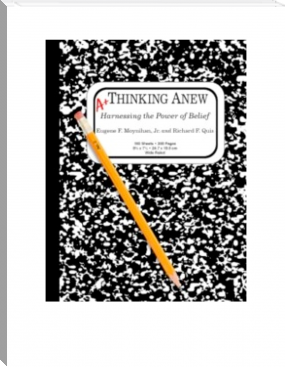Write It Right - Ambrose Bierce (a book to read txt) 📗

- Author: Ambrose Bierce
Book online «Write It Right - Ambrose Bierce (a book to read txt) 📗». Author Ambrose Bierce
a number of things, you wish to direct attention to their variety--their difference, one from another. "The dividend was distributed among the various stockholders." The stockholders vary, as do all persons, but that is irrelevant and was not in mind. "Various persons have spoken to me of you." Their variation is unimportant; what is meant is that there was a small indefinite number of them; that is, several.
_Ventilate_ for _Express, Disclose_, etc. "The statesman ventilated his views." A disagreeable and dog-eared figure of speech.
_Verbal_ for _Oral_. All language is verbal, whether spoken or written, but audible speech is oral. "He did not write, but communicated his wishes verbally." It would have been a verbal communication, also, if written.
_Vest_ for _Waistcoat_. This is American, but as all Americans are not in agreement about it it is better to use the English word.
_Vicinity_ for _Vicinage_, or _Neighborhood_. "He lives in this vicinity." If neither of the other words is desired say, He lives in the vicinity of this place, or, better, He lives near by.
_View of_. "He invested with the view of immediate profit." "He enlisted with the view of promotion." Say, with a view to.
_Vulgar_ for _Immodest_, _Indecent_. It is from _vulgus_, the common people, the mob, and means both common and unrefined, but has no relation to indecency.
_Way_ for _Away_. "Way out at sea." "Way down South."
_Ways_ for _Way_. "A squirrel ran a little ways along the road." "The ship looked a long ways off." This surprising word calls loudly for depluralization.
_Wed_ for _Wedded_. "They were wed at noon." "He wed her in Boston." The word wed in all its forms as a substitute for marry, is pretty hard to bear.
_Well_. As a mere meaningless prelude to a sentence this word is overtasked. "Well, I don't know about that." "Well, you may try." "Well, have your own way."
_Wet_ for _Wetted_. See _Bet_.
_Where_ for _When_. "Where there is reason to expect criticism write discreetly."
_Which_ for _That_. "The boat which I engaged had a hole in it." But a parenthetical clause may rightly be introduced by which; as, The boat, which had a hole in it, I nevertheless engaged. Which and that are seldom interchangeable; when they are, use that. It sounds better.
_Whip_ for _Chastise_, or _Defeat_. To whip is to beat with a whip. It means nothing else.
_Whiskers_ for _Beard_. The whisker is that part of the beard that grows on the cheek. See _Chin Whiskers_.
_Who_ for _Whom_. "Who do you take me for?"
_Whom_ for _Who_. "The man whom they thought was dead is living." Here the needless introduction of was entails the alteration of whom to who. "Remember whom it is that you speak of." "George Washington, than whom there was no greater man, loved a jest." The misuse of whom after than is almost universal. Who and whom trip up many a good writer, although, unlike which and who, they require nothing but knowledge of grammar.
_Widow Woman_. Omit woman.
_Will_ and _Shall_. Proficiency in the use of these apparently troublesome words must be sought in text-books on grammar and rhetoric, where the subject will be found treated with a more particular attention, and at greater length, than is possible in a book of the character of this. Briefly and generally, in the first person, a mere intention is indicated by shall, as, I shall go; whereas will denotes some degree of compliance or determination, as, I will go--as if my going had been requested or forbidden. In the second and the third person, will merely forecasts, as, You (or he) will go; but shall implies something of promise, permission or compulsion by the speaker, as, You (or he) shall go. Another and less obvious compulsion--that of circumstance--speaks in shall, as sometimes used with good effect: In Germany you shall not turn over a chip without uncovering a philosopher. The sentence is barely more than indicative, shall being almost, but not quite, equivalent to can.
_Win out_. Like its antithesis, "lose out," this reasonless phrase is of sport, "sporty."
_Win_ for _Won_. "I went to the race and win ten dollars." This atrocious solecism seems to be unknown outside the world of sport, where may it ever remain.
_Without_ for _Unless_. "I cannot go without I recover." Peasantese.
_Witness_ for _See_. To witness is more than merely to see, or observe; it is to observe, and to tell afterward.
_Would-be_. "The would-be assassin was arrested." The word doubtless supplies a want, but we can better endure the want than the word. In the instance of the assassin, it is needless, for he who attempts to murder is an assassin, whether he succeeds or not.
Imprint
_Ventilate_ for _Express, Disclose_, etc. "The statesman ventilated his views." A disagreeable and dog-eared figure of speech.
_Verbal_ for _Oral_. All language is verbal, whether spoken or written, but audible speech is oral. "He did not write, but communicated his wishes verbally." It would have been a verbal communication, also, if written.
_Vest_ for _Waistcoat_. This is American, but as all Americans are not in agreement about it it is better to use the English word.
_Vicinity_ for _Vicinage_, or _Neighborhood_. "He lives in this vicinity." If neither of the other words is desired say, He lives in the vicinity of this place, or, better, He lives near by.
_View of_. "He invested with the view of immediate profit." "He enlisted with the view of promotion." Say, with a view to.
_Vulgar_ for _Immodest_, _Indecent_. It is from _vulgus_, the common people, the mob, and means both common and unrefined, but has no relation to indecency.
_Way_ for _Away_. "Way out at sea." "Way down South."
_Ways_ for _Way_. "A squirrel ran a little ways along the road." "The ship looked a long ways off." This surprising word calls loudly for depluralization.
_Wed_ for _Wedded_. "They were wed at noon." "He wed her in Boston." The word wed in all its forms as a substitute for marry, is pretty hard to bear.
_Well_. As a mere meaningless prelude to a sentence this word is overtasked. "Well, I don't know about that." "Well, you may try." "Well, have your own way."
_Wet_ for _Wetted_. See _Bet_.
_Where_ for _When_. "Where there is reason to expect criticism write discreetly."
_Which_ for _That_. "The boat which I engaged had a hole in it." But a parenthetical clause may rightly be introduced by which; as, The boat, which had a hole in it, I nevertheless engaged. Which and that are seldom interchangeable; when they are, use that. It sounds better.
_Whip_ for _Chastise_, or _Defeat_. To whip is to beat with a whip. It means nothing else.
_Whiskers_ for _Beard_. The whisker is that part of the beard that grows on the cheek. See _Chin Whiskers_.
_Who_ for _Whom_. "Who do you take me for?"
_Whom_ for _Who_. "The man whom they thought was dead is living." Here the needless introduction of was entails the alteration of whom to who. "Remember whom it is that you speak of." "George Washington, than whom there was no greater man, loved a jest." The misuse of whom after than is almost universal. Who and whom trip up many a good writer, although, unlike which and who, they require nothing but knowledge of grammar.
_Widow Woman_. Omit woman.
_Will_ and _Shall_. Proficiency in the use of these apparently troublesome words must be sought in text-books on grammar and rhetoric, where the subject will be found treated with a more particular attention, and at greater length, than is possible in a book of the character of this. Briefly and generally, in the first person, a mere intention is indicated by shall, as, I shall go; whereas will denotes some degree of compliance or determination, as, I will go--as if my going had been requested or forbidden. In the second and the third person, will merely forecasts, as, You (or he) will go; but shall implies something of promise, permission or compulsion by the speaker, as, You (or he) shall go. Another and less obvious compulsion--that of circumstance--speaks in shall, as sometimes used with good effect: In Germany you shall not turn over a chip without uncovering a philosopher. The sentence is barely more than indicative, shall being almost, but not quite, equivalent to can.
_Win out_. Like its antithesis, "lose out," this reasonless phrase is of sport, "sporty."
_Win_ for _Won_. "I went to the race and win ten dollars." This atrocious solecism seems to be unknown outside the world of sport, where may it ever remain.
_Without_ for _Unless_. "I cannot go without I recover." Peasantese.
_Witness_ for _See_. To witness is more than merely to see, or observe; it is to observe, and to tell afterward.
_Would-be_. "The would-be assassin was arrested." The word doubtless supplies a want, but we can better endure the want than the word. In the instance of the assassin, it is needless, for he who attempts to murder is an assassin, whether he succeeds or not.
Imprint
Publication Date: 08-31-2010
All Rights Reserved
Free e-book «Write It Right - Ambrose Bierce (a book to read txt) 📗» - read online now
Similar e-books:





Comments (0)